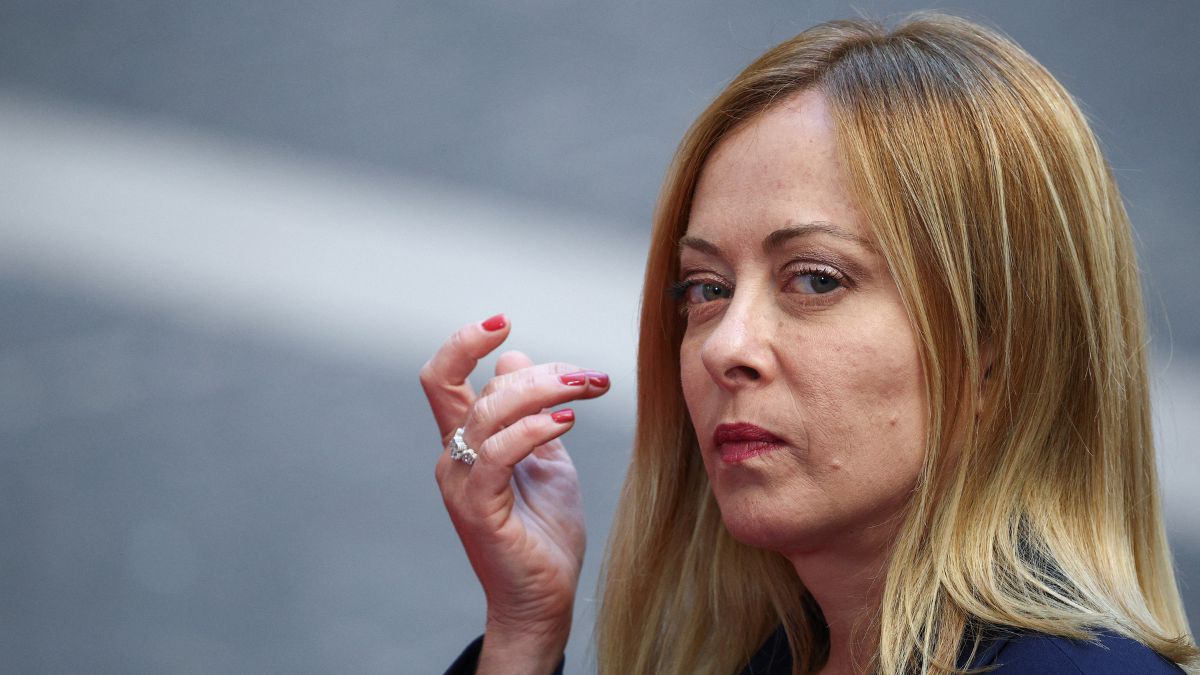A new security decree introduced by Prime Minister Giorgia Meloni’s right-wing coalition government has divided Italy.
Approved by the Senate with 109 votes in favour, 69 against, and one abstention, the legislation has sparked a backlash from opposition lawmakers, human rights bodies and legal groups, who argue that it undermines fundamental freedoms and disproportionately punishes marginalised communities.
The decree expands legal authority for law enforcement, imposes stricter penalties on demonstrators, and introduces a variety of criminal provisions touching on protests, public order, cannabis regulation, and social housing.
While the government insists the law is a necessary measure to safeguard security, critics see it as a repressive attempt to criminalise dissent and curb civil liberties in one of Europe’s major democracies.
What the new security law in Italy comprises
Among the central features of the law is the criminalisation of disruptive protest tactics, such as blocking roads and defacing public monuments—methods commonly used by environmental activists and other political movements in Italy.
Participation in sit-ins, particularly when they affect transportation or public property, may now lead to criminal prosecution and even prison time.
The law also introduces new criminal categories tied to unrest inside prisons and migrant detention facilities. Notably, acts that had previously been treated as non-violent expressions of dissent — such as passive resistance — now carry the risk of formal charges.
Tougher sentences are introduced for individuals accused of inciting or participating in riots within detention centres.
Critics say this expansion of legal definitions could lead to disproportionate punishment for migrants and incarcerated individuals, especially in situations where the use of force by the state is already under scrutiny.
Evictions of people occupying vacant buildings — especially those used for informal housing — will now proceed under stricter rules. Squatting, which was earlier treated with leniency in some cases due to Italy’s housing crisis, will now invite potentially severe penalties, including longer prison terms.
According to lawyer Cesare Antetomaso from the National Association of Democratic Lawyers, “There is a drastic increase in penalties for occupying buildings to live in,” adding that the housing crisis should be addressed through welfare policy, not criminal enforcement.
One of the decree’s most controversial provisions bans the sale of “cannabis light,” a legal form of hemp that contains only trace amounts of THC and does not have psychoactive effects.
This decision has enraged business owners who argue that the move will destroy an entire legal market, cost thousands of jobs, and result in major financial losses in an already fragile economy.
Another provision removes a long-standing legal exemption that allowed convicted pregnant women or mothers of small children to avoid incarceration or serve sentences in alternative facilities.
The government justifies the move by claiming the rule was being exploited by repeat offenders, particularly among Roma women.
Gianni Berrino, a senator from the Brothers of Italy party, defended this position by stating, “It’s useless to say that this decree is inhumane, because women who have children in order to steal are not worthy of having them.”
How this law changes protection for police
Under the new law, significantly enhanced protections have been granted to police and armed forces personnel. Officers under investigation or standing trial for actions committed during duty — including the use of force — will be eligible for legal assistance of up to €10,000.
The legislation also establishes specific penalties for causing injury to law enforcement officers during demonstrations.
An especially controversial aspect concerns the increased discretion granted to intelligence services, whose agents may now commit certain criminal acts without facing prosecution, provided these are justified on grounds of national security.
Human rights watchdogs and opposition politicians have condemned this clause as a threat to democratic oversight and accountability.
Meloni’s government, which won power in the 2022 general election and has remained popular in polls, has described the law as part of a broader initiative to restore order and strengthen Italy’s internal security.
“With the final approval of the Security Decree in the Senate, the Government takes a decisive step to strengthen the protection of citizens, the most vulnerable groups and our men and women in uniform,” Meloni said following the Senate vote.
Party leaders have frequently linked their legal reforms to public demands for tougher governance. “Order, security and legality are at the heart of the Meloni government’s actions,” said Carolina Varchi, a deputy from the Brothers of Italy party.
“Challenging this decree means, in effect, turning one’s back on the demand for security that comes from citizens.”
How the new security law has divided Italy
The opposition, led by centre-left parties, has reacted strongly both inside and outside Parliament. During the final Senate vote, lawmakers from the Democratic Party staged a protest on the chamber floor, chanting “shame, shame” and sitting down in defiance of protocol.
Elly Schlein, the party’s leader, accused the government of using the law to silence political opposition: “It is a decree that is not about more security, but about more repression.”
Francesco Boccia, a senior Democratic Party senator, condemned the criminalisation of youth activism and labour protests: “We challenge a government that wants to imprison children, students who strike and protesters outside factories.”
On Saturday, May 31, thousands of demonstrators marched through central Rome under heavy police presence, braving intense heat to protest the law. Participants carried trade union and Palestinian flags, chanting slogans and calling for the law’s repeal.
Speaking at the protest, Cesare Antetomaso of the National Association of Democratic Lawyers told AFP, “We consider this law the biggest attack on the freedom to dissent in the history of the Italian republic.”
He specifically criticised its approach to housing and homelessness: “There is a drastic increase in penalties for occupying buildings to live in. The housing crisis cannot be solved with seven-year prison sentences for those without shelter, but with various social policies.”
Human rights institutions have also issued multiple warnings about the decree’s compatibility with international law. The Council of Europe Commissioner for Human Rights, Michael O’Flaherty, expressed deep concern in a letter to Senate President Ignazio La Russa, warning the law could compromise protections for protesters, migrants, and young activists under European standards.
The OSCE Office for Democratic Institutions and Human Rights has earlier raised red flags, stating that several provisions in the law could “undermine the fundamental tenets of criminal justice and the rule of law.”
In two separate communications, eight United Nations Special Rapporteurs had intervened. Six of them highlighted how the decree might breach obligations under the International Covenant on Civil and Political Rights.
Meanwhile, the Special Rapporteurs on housing and poverty pointed to violations of the International Covenant on Economic, Social and Cultural Rights, particularly concerning the criminalisation of squatting and homelessness.
Also Watch:
With inputs from agencies


)

)
)
)
)
)
)
)
)



